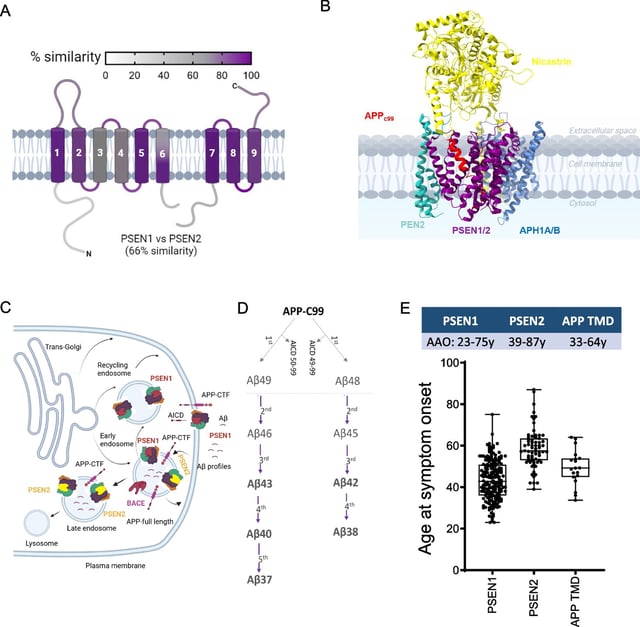Overview
- A study published in *Molecular Neurodegeneration* establishes a predictive model linking mutations in PSEN1, PSEN2, and APP genes to the age of onset for familial Alzheimer’s disease.
- The research demonstrates a unified mechanism where γ-secretase dysfunction drives disease onset, correlating shifts in amyloid-β (Aβ) processing with symptom timing.
- Findings indicate that a 12% shift in Aβ profiles could delay Alzheimer’s onset by up to five years, highlighting the therapeutic potential of γ-secretase modulators.
- PSEN2 mutations were found to delay onset by an average of 27 years compared to PSEN1, while APP mutations delayed onset by eight years on average.
- The study introduces a dual framework to assess variant pathogenicity and identify carriers influenced by genetic or environmental modifiers, paving the way for personalized medicine approaches.
